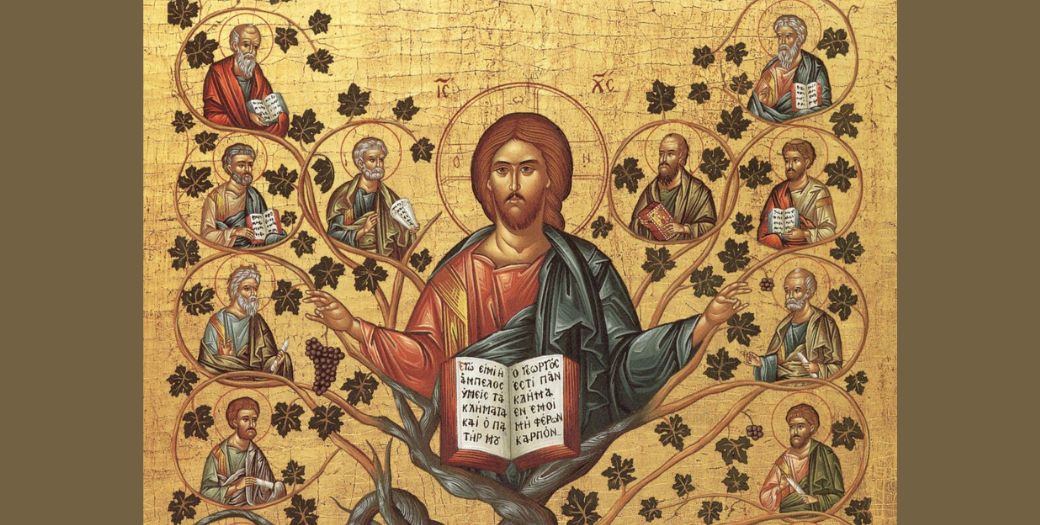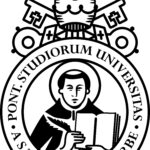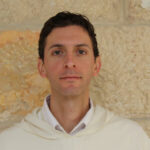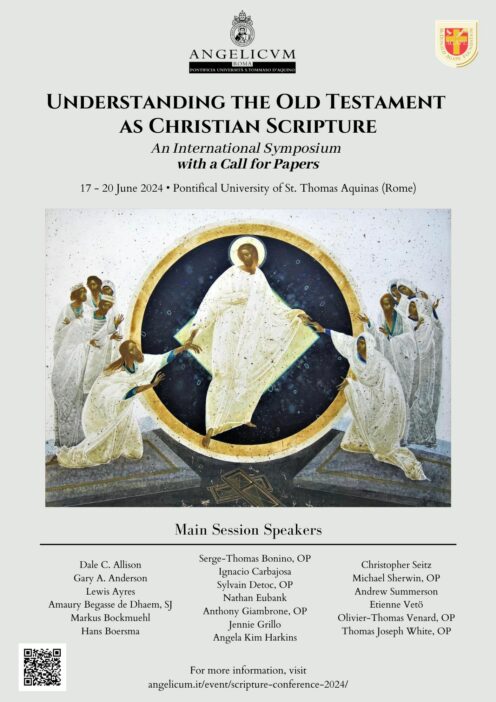Project for the Theological Reception of Scripture

There is an ancient Jewish tradition that refers to the Bible as a “tree of life,” a living source of wisdom (Prov. 3:18). The tree is rooted in the Torah and in ancient prophecy. It sprouts in the people of Israel. Its branches extend through time and space, over generations, living through theologians and Scriptural commentators who bring the wisdom of the Bible forward into every age. The people of God come to find shade and life in the shadow of that tree. The Book of Revelation applies this same image of a “tree of life” to Christ in heaven, where his light illumines the whole city of God (Rev. 22:2-5). Jesus is the ultimate “interpreter” of the Bible, revealing the mystery of God, and his Cross is the tree of salvation that has roots in the Old Testament, and that lives as a vine in the people of God: “I am the vine and you are the branches,” (John 15:5). Since Christ’s passion Scripture has been opened for us, as St Thomas himself asserts (Expos. in Ps. 21.11).
But how can the Bible be a tree of life for Christians in our own era? The Catechism tells us that because only one Word is spoken in all the Scriptures, the one Word who was in the beginning with God, the Church venerates those Scriptures as she venerates the Lord’s body (paras 102-4). How can we help theologians venerate and interpret the Bible as the living word of God spoken in the Church? Modern studies of the Bible in its original cultural context abound, and they certainly provide new insight into the probable intentions of the human authors of Scripture. Other modern styles make use of a wide variety of modern theoretical work, and open up new possibilities for conversation with the forms of reading hallowed by tradition. Vatican II insisted that Scripture must be read in the light of the same Spirit by whom it was written, and thus this project hopes to bring all these different modern styles into dialogue with traditional Christian visions of Scriptural reading.
One central resource for those seeking to venerate and interpret Scripture is the Church’s tradition. The early Christian period saw the formation of a set of reading practices and assumptions about Scripture that have shaped Christian thought ever since. In the light of Christ, the unity of the Scriptures formed the basis for all reading and was constantly performed in the liturgy. Close scholarly attention to the words of the text found its natural complement in recognition that texts were given so that depths of meaning might be teased from them under the guidance of the Spirit. Speculative theology found its roots and constant point of reference in the multiple layers of the text, while the studying of Scripture and the praying of Scripture mutually informed each other. The emerging doctrinal and credal tradition of the Church resulted from and formed the flowering of this Scriptural culture over the centuries. Medieval and early reformed modes of reading emerged against this background; thus, shaping a vision of Scripture for our day demands of us a constant dialogue with these traditions.
How might we shape such a dialogue? This is not a project for any one person, or any one modern professional sub-division of theology. We need a concerted international coordination of scholars (Catholic, Protestant, and Orthodox) who together reflect on the interpretation of Scripture after modern exegesis, and as the inspired word of God.
This Project for the Theological Reception of Scripture will serve as a fulcrum around which many conversations may turn, and a foundation that may shape thinking throughout Church and academy. Courses are offered at the baccalaureate, licentiate, and doctoral level by professors associated with this project. The Project will also host a biennial international conference on topics related to the theological reception of Scripture.
Professors

Prof. Lewis Ayres
McDonald Agape Distinguished Chair in Early Christian Theology

Prof. Markus Bockmuehl
McDonald Agape Visiting Professor of Early Christianity

Prof. Sylvain Detoc, OP
McDonald Agape Fellow in Patristic Studies

Prof. Simon Dürr
McDonald Agape Fellow of New Testament Theology

Prof. Phillip Lasater
McDonald Agape Fellow of Old Testament Theology

Prof. Thomas Cattoi
William and Barbara Moran Chair in Early Christian Theology and Interreligious Relations

Prof. Therese Yuan
McDonald Agape Visiting Professor of Scripture
(Autumn 2023)

Prof. Anthony Giambrone, OP
McDonald Agape Visiting Professor of Scripture
(Spring 2024)
Biennial International Conference
A biennial public, international conference will be held on a topic related to this project to assemble experts from around the world in an ecumenical format. The goal is to facilitate an international network of professors and graduate students through the biennial meetings in Rome as a reference for conversations that happen between them as well as encourage scholarly research and publication on these topics.
Our inaugural conference will take place on 17-20 June 2024 on “Understanding the Old Testament as Christian Scripture”. The conference will bring together a wide array of experts in biblical, patristic, and contemporary theology to reflect on Scripture as the root and source of Christian theology in an ecumenical context. There is also a call for papers for the afternoon breakout sessions.
For more information on this conference, please visit our Conference Page.

